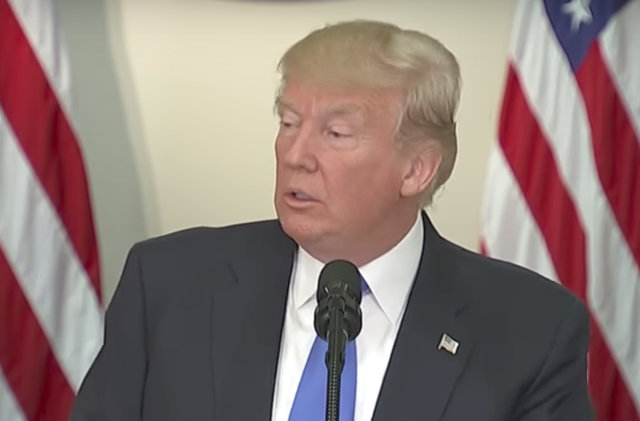 The latest would-be kerfuffle in the semi-permanent Russian melodrama eclipsing most U.S. political coverage has to do with various Trump satellites testifying before Congress without being technically under oath.
The latest would-be kerfuffle in the semi-permanent Russian melodrama eclipsing most U.S. political coverage has to do with various Trump satellites testifying before Congress without being technically under oath.
Democratic Representative Ted Lieu, (D-California), said the following last night on Twitter: “Why would Crooked Kushner not testify under oath even though his attorney says he wants to be “helpful”? Because #Kushner is a liar.”
Jake Tapper and Senator Al Franken (D-Minn.) made an issue out of Paul Manafort and Donald Trump Jr.’s upcoming testimony on Sunday. Speaking with Tapper on CNN’s State of the Union, Tapper said:
“[Donald Trump Jr. and Paul Manafort are] going to testify behind closed doors and not under oath. Is that good enough?”
Franken replied: “No, that’s not good enough. It should be under oath.”
Lawfareblog.com editor Benjamin Wittes, who most recently made news by being one of James Comey‘s friends, said the word “testimony” is inaccurate in Manafort and Trump II’s case:
Then it won’t be testimony. https://t.co/ukq9MldI25
— Benjamin Wittes (@benjaminwittes) July 23, 2017
Actually, it is. Testimony is not solely defined as statements made under oath–even typically stringent legal definitions allow some flexibility on what counts as testimony. But that’s beside the point.
As Senator Chuck Grassley (R-Iowa) has pointed out, lying to Congress is a crime even without being under oath. Full stop. So, let’s take a look at the laws on point to try and root out this manufactured confusion.
First of all, there’s the specific federal perjury statute, located at 18 U.S.C. 1621. This law requires that a person be under oath and, so, is inapplicable here.
There’s also a general prohibition against lying to the federal government. This general prohibition is a catch-all statute located at 18 U.S.C. 1001 and there’s no oath-taking requirement. It reads, in relevant part:
“[W]hoever, in any matter within the jurisdiction of the executive, legislative, or judicial branch of the Government of the United States, knowingly and willfully–
falsifies, conceals, or covers up by any trick, scheme, or device a material fact;
makes any materially false, fictitious, or fraudulent statement or representation; or
makes or uses any false writing or document knowing the same to contain any materially false, fictitious, or fraudulent statement or entry;
shall be fined under this title, [or] imprisoned not more than 5 years…”
As is standard with catch-all provisions, the above statute contains extremely broad language intended to capture and criminalize nearly any sort of dissimulation imaginable–as long as it’s committed against the federal government in some form or permutation. This generalized law has been used to snare multiple liars of note, including Martha Stewart, Bernie Madoff and Scooter Libby.
Which is to say, it’s not completely toothless. However, caution should be exercised here in the extreme. Federal prosecutions for lying (whether specific perjury or general lying) are extremely rare and even harder to prove. Prosecutors would have to show not only that some form of deception did occur, but also that it was intended to be deceiving when it occurred. In other words, the accused can’t simply have been proven a liar, the prosecution would also have to prove the accused knew they lied when they were lying.
That’s an exceedingly tough standard to meet.
[image via Shutterstock]